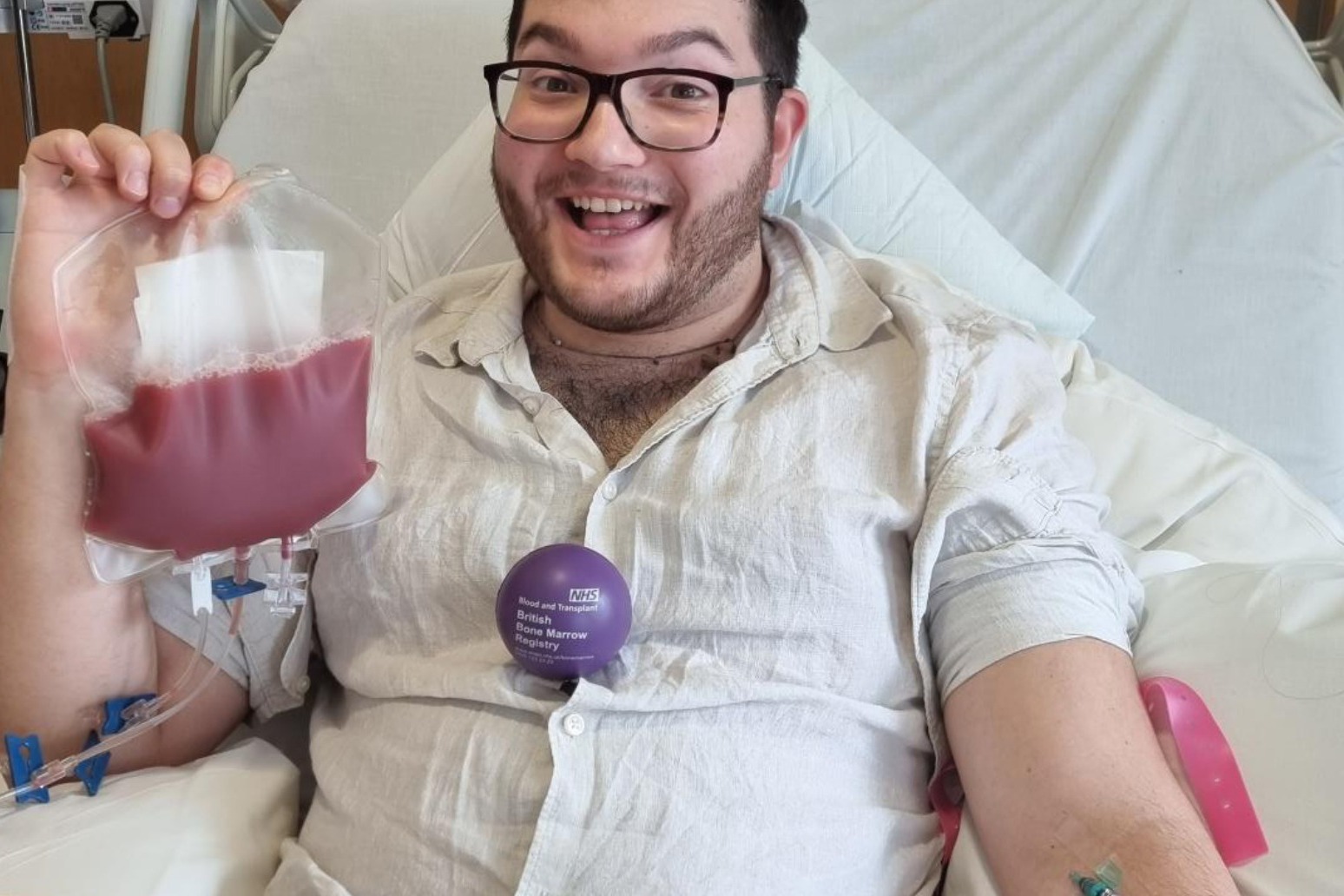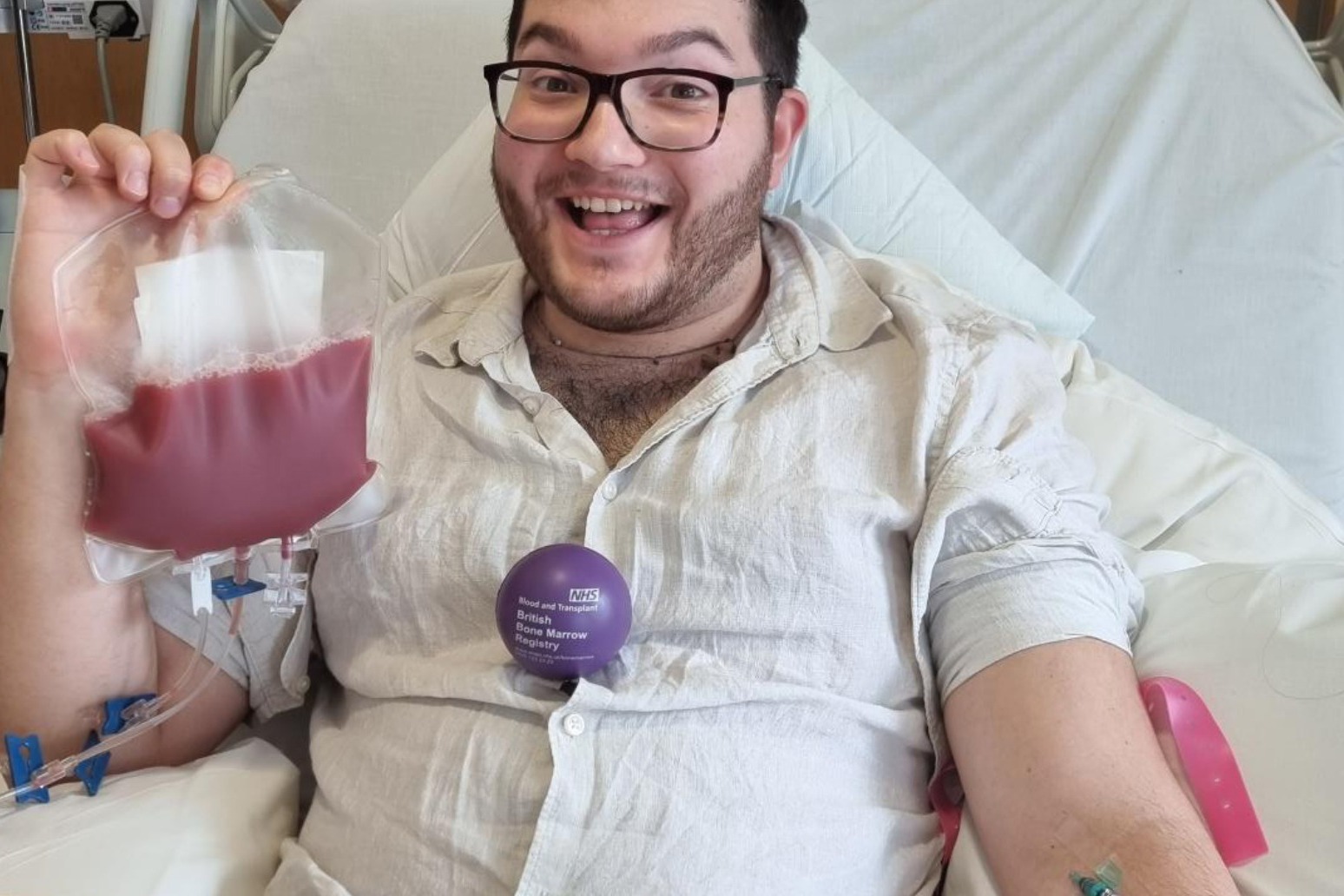Listeners:
Top listeners:
-
 play_arrow
play_arrow
WBPL – LIVE As Blackpool As You Are
 Adele - Easy On Me
Wow I love this song! Thank you for your amazing music!
Aria R.
Adele - Easy On Me
Wow I love this song! Thank you for your amazing music!
Aria R.
 Deep Purple - Smoke On the Water
Shoutout to the rainbow in my life, Gina!
Orion S.
Deep Purple - Smoke On the Water
Shoutout to the rainbow in my life, Gina!
Orion S.
 Luna Park - Space Melody (Radio Version)
Calling my cosmic companion, Jane! Hit play and let's embark on a musical space journey.
Luna Park - Space Melody (Radio Version)
Calling my cosmic companion, Jane! Hit play and let's embark on a musical space journey.
Blood stem cell breakthrough could have massive impact on patients


Scientists have grown blood stem cells in the laboratory for the first time in a move that could potentially end the need for stem cell transplants.
During a stem cell (or bone marrow) transplant, damaged blood cells are replaced with healthy ones and can be used to treat conditions such as leukaemia.
However, finding a donor match can be difficult and some patients die before a donor is found.
In the new study, experts at the Murdoch Children’s Research Institute (MCRI) in Melbourne, Australia, have managed to grow stem cells in the lab and then shown their successful use in mice.
The team believe that, with government funding, they could conduct a trial in humans in around five years’ time.
Professor Elizabeth Ng, who led the research, published in Nature Biotechnology, said researchers had overcome a major hurdle in producing blood stem cells.
She said: “The ability to take any cell from a patient, reprogramme it into a stem cell and then turn these into specifically matched blood cells for transplantation will have a massive impact on vulnerable patients’ lives.
“Prior to this study, developing human blood stem cells in the lab that were capable of being transplanted into an animal model of bone marrow failure to make healthy blood cells had not been achievable.
“We have developed a workflow that has created transplantable blood stem cells…Importantly, these human cells can be created at the scale and purity required for clinical use.”
In the study, mice were injected with lab-engineered human blood stem cells.
Scientists found that the blood stem cells became functional bone marrow at similar levels to those seen in umbilical cord blood cell transplants.
Umbilical cord stem cell transplants are already offered to some sick patients if a donor cannot be found or a close relative is not a match.
In the new research, the team also found that the lab-grown stem cells could be frozen before being successfully transplanted into mice.
This mimicked how blood stem cells are preserved before being transplanted into patients.
In the human body, stem cells are produced by bone marrow and can turn into different types of blood cells.
They mainly become red blood cells, which carry oxygen around the body; white blood cells, which help fight infection; and platelets, which help stop bleeding.
At the moment, stem cells for transplant can be harvested from blood, from bone marrow or from umbilical cord blood.
MCRI Professor Ed Stanley said the new findings could lead to better treatment for a range of blood disorders.
He said: “Red blood cells are vital for oxygen transport and white blood cells are our immune defence, while platelets cause clotting to stop us bleeding.
“By perfecting stem cell methods that mimic the development of the normal blood stem cells found in our bodies we can understand and develop personalised treatments for a range of blood diseases, including leukaemias and bone marrow failure.”
MCRI Professor Andrew Elefanty said not all patients at the moment find a donor match.
“Mismatched donor immune cells from the transplant can attack the recipient’s own tissues, leading to severe illness or death,” he added.
“Developing personalised, patient-specific blood stem cells will prevent these complications, address donor shortages and, alongside genome editing, help correct underlying causes of blood diseases.”
Published: by Radio NewsHub
Written by: admin
-
Recent Posts
- New City Minister Summons Lenders To Urge Take Up Of Looser Mortgage Rules
- Thomas Tuchels England Era Comes Alive With Five Star Display In Serbia
- Poland Downs Drones That Violated Airspace During Russian Bombardment Of Ukraine
- Only Four Of 92 Clubs Ready For Footballs New Regulator Fair Game Index Finds
- Harry Makes Personal Donation Of 11m To Children In Need
Chart
-

1
Jonas Blue, Liam Payne And Lennon Stella
Polaroid
-

2
Tanja Thomas
One Way Ticket (To The Blues)
-
3
The Monkees, 01.01
I'm A Believer
-
Top popular

Difficult day as last blast furnace shuts down at Port Talbot steelworks

UK Government charters flight for Britons in Lebanon

Household energy bills to rise for winter as Ofgem lifts price cap

Downton Abbey creator Julian Fellowes Dame Maggie Smith was blessing in my life

Ringleader of plot to smuggle 76m of cocaine into UK hidden in bananas jailed

WHO WE ARE
We are bringing the fun back to the seaside city, and we live and love EVERYTHING Blackpool!
CONTACT
- info@wbplradio.com
Copyright The Mediasite UK - 2024.



